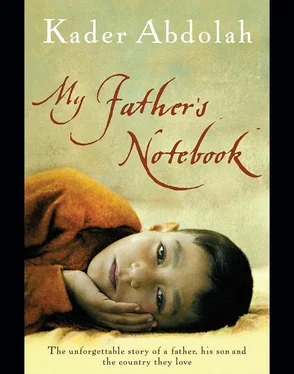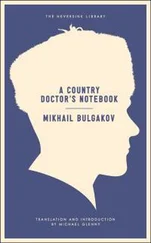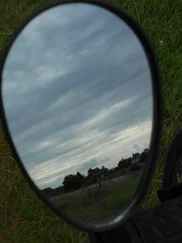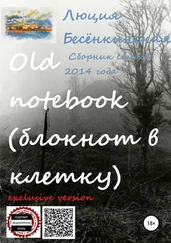My instructions were simple: clean up and get out.
First the stencil machine, then the car.
There was no sign of any suspicious activity near my flat. No strange cars were parked nearby.
I parked, lingered deliberately by the door, then went up the stairs. It was hard for me to accept that my printing operation had come to an end. I gathered up the documents and the ink, stuffed them in a bag and put them in the car, leaving the boot open. Then I hurried back upstairs.
I dragged the machine out of the wardrobe, wrapped it in a blanket and tipped it onto the bed.
I was afraid that if I bent down and lifted it on my back from the bed, I’d never be able to straighten up again. What if my back muscles seized up like they had the last time and the pain was so intense that I couldn’t move? There had to be a better way.
I shoved the table next to the bed, then stood on the bed and manoeuvred the machine onto the table. That was better.
I remembered reading about a mother in France who, when she saw her child trapped beneath the wheels of a lorry, lifted up the lorry and pulled her child to safety.
I bent down and lifted the stencil machine onto my back, then staggered to the door and the stairway. It didn’t matter if anyone saw me now. Holding the machine tightly with one hand and gripping the banister with the other, I started carefully down the stairs.
A flat door opened. I heard a man’s footsteps. Don’t panic,
I said to myself.
“What are you doing, neighbour?”
“Just carrying something to the car,” I calmly replied.
“What on earth is it?”
“Would you mind giving me a hand? I don’t want to ruin my back.”
I sat down on one of the steps and lowered the machine.
“Why didn’t you ask me for help?” he said.
“I didn’t want to disturb you. Besides, I didn’t know if you were home.”
The two of us carried the machine down the stairs.
“Whew, it’s heavy,” he moaned. “What the hell is it?”
“Just … uh, er … a piece of junk,” I said as casually as possible. “A kind of hobby of mine. You know … uh, er… repairing old machines. Life’s expensive and the extra cash comes in handy. But there’s not much room in my flat, so I’m … uh, er … getting rid of the junk. Here we are, the boot’s open. Thanks, I appreciate your help!”
We lowered the machine into the trunk. My neighbour went back upstairs. I slammed the boot shut and drove off.
A Christmas Tree in Akbar’s Notebook
Take my coat. It’s cold on the other side of the
mountain .

After I’d written about stowing the stencil machine in the boot of my car, I put down my pen and went to my local shopping centre. It dawned on me that it was December. The last December of the century.
There was a man selling Christmas trees in the square. I watched as he unloaded his trees, and a couple of children, with a nod from their mother, picked one out. The shop windows were all decorated. I hadn’t really noticed them before. Somehow Christmas seemed different this year, as if this were the first Christmas I’d ever spent in Holland. Why had I paid so little attention in the past?
I bought a tree — a light green fir. My wife usually took care of such things. Why did I suddenly become aware of the holiday preparations and why did I buy a tree?
When I took it home, my wife exclaimed, “Look, Ishmael bought a Christmas tree!”
Was it just a coincidence?
Maybe I was relieved to be nearing the end of my father’s notes. Now that the Dutch version of Aga Akbar’s notebook was almost finished, I wanted the book to have a Christmas tree — one decorated with coloured lights, angels, hearts … and golden bells.
These last few weeks had been so tiring that I needed to get away. In past years we’d packed our bags and gone off to visit friends in Germany, Belgium, England or Sweden. This year I wanted to stay in Holland. We went from one travel agency to the next, hoping to book a cabin for the Christmas holidays, but the travel agents stared at us in disbelief. At this late date?
I’d read all kinds of maths books when I was studying physics, so I knew that, according to the laws of statistical probability, there had to be at least one cancellation among the thousands of bookings.
Sure enough, there was. Somebody had just called. The cabin was expensive and too big for the three of us, but luckily my wife was good at resolving problems like this. She immediately phoned a friend of hers, who said that she and her daughter would be delighted to spend the holidays away from home. We were all set.
We left and I took my father’s notebook along, hoping to finish the story.
The cabin was located on a campground in Friesland, somewhere between Drachten and Leeuwarden. When we got there, the fog was so thick we couldn’t see the surrounding countryside. For the rest of the afternoon and evening, we looked out on grey fields.
I liked the idea of celebrating Christmas and the New Year with my wife’s friend and daughter, because it would add to the festive spirit. We started to decorate the house. As it turned out, we could have left our Christmas tree at home, because the cabin already had one.
We agreed that if I did the grocery shopping, the women would do the rest, which meant I could work for a few hours every day. I wanted to have the book done before the new century began.
“Where are you?” my wife called.
“Here, upstairs.”
“Come on down. I’m making coffee.”
I came down.
“I was looking out the upstairs window,” I said. “The cabin seems to be floating on clouds. There’s grey fog everywhere. I don’t think it’s ever going to lift. What are you lot planning to do?”
“We haven’t decided yet,” my wife said. “After we’ve unpacked, we might go into town with the children. Do you want to come along?”
“No, I’d rather stay here. According to the camping guide, there’s a village with a café about three or four miles away. I think I’ll walk there.”
They decided to take the bus to Leeuwarden.
I put on my hiking boots, grabbed a writing pad and set off to find the café.
Although I followed the route given in the guidebook, it came to a dead end at a river, or maybe it was a lake. Anyway, a ferryboat suddenly loomed up out of the mist. A bearded old man slowly steered the boat towards the shore.
“Get in,” he said in some kind of dialect.
“Get in? Where are you going?”
“To the other side.”
“But I want to go to the café.”
“Get in!” he said.
I got in.
“I thought you could walk all the way,” I said.
“You can,” he said, “though in that case you should’ve taken a different route.”
After a few minutes the ferry reached the other side. The ferryman pointed: over there. Through the fog I saw a faint gleam of light.
It was a quiet village, consisting of two rows of old and not very large houses. In the village square, I saw a café with a Heineken sign. I peeked inside to see if anyone was there. An old man, presumably the owner, was standing behind the bar. Otherwise the room was empty.
“Are you open?” I called from the doorway.
“Sure. Come on in!” the owner said.
I went and sat by a window, so I could look outside.
“How about a cup of coffee?” I said.
The café was quiet — a good place to write.
“Do you need cream and sugar?” the owner asked.
“Black is fine. No, wait, with cream, please.”
I took out my pen and notebook and began to write.
Читать дальше













